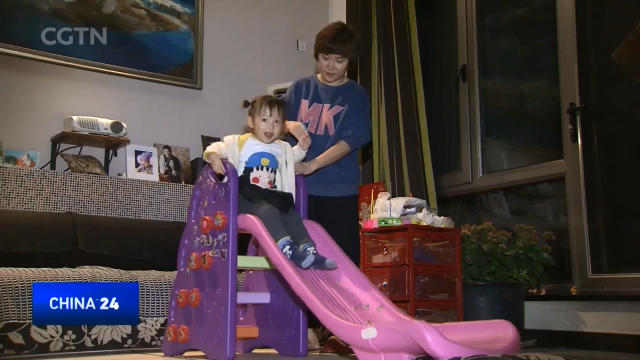
21:15, 11-Jun-2018
China Population Day: Birth rate fell last year despite dropping One-Child policy
03:56

China's Two-Child Policy -- first implemented on January 1st, 2016 -- initially had a positive impact on birth rates. The number went up that year, to 17.9 million, but it dropped back down to 17.2 last year. So what happened? Our reporter Wei Lynn Tang visited two families in the capital, Beijing to get some first-hand experience on the matter.
A family of three. This has been a common sight in China for almost 4 decades now, partly, thanks to the country's One Child Policy implemented back in 1980.
Song Yan and his wife Li Ling are in their mid to late-30s. They have a 3-year-old daughter, and live a comfortable life, financially.
But even then, they're hesitant to the idea of having a second child.
SONG YAN SELF-EMPLOYED "We may not have the strength or ability to take care of a second child. My parents are now old, and more energy needs to be spent on them. Also, there aren't many particularly good schools in our area -- especially public kindergartens, which we would like to sign her up for. And even if there is, the requirements can be pretty stringent such as registered residence."
But it's these very circumstances, of having grown up in a single-child home, that's prompted young couples to raise their children, with a sense of independence, and resilience.
LI LING MOTHER AND TEACHER "We do not think of how we want our kids to take care of us when we are old. When she grows up it's her own life, we don't need her to return us any favour."
WEI LYNN TANG BEIJING "Since China's Two Child Policy was implemented in 2016, just over 17 million new borns were seen in each of the past two years -- falling below authorities' projection of 20 million births a year. Is 2017's fall a temporary dip? Or could it be the start of a new declining trend? How concerned should the country be, and what can be done?
China's National Health and Family Planning Commission says, better facilities and services in nurseries and elementary schools will encourage couples to have more children.
The country's fertility rate, at 1.05 per woman in 2015, according to the National Bureau of Statistcs, was the world's lowest.
But it's not all gloomy.
Yuelin, a 41-year-old career woman says, while her second daughter came as an accidental surprise, she has no regrets.
Of ethnic minority, she could have even had a second child if she wanted to, but decided against it initially, hinting to the lack of a support system from her spouse.
YUELIN INSURANCE AGENT "There is a need to have a second child. I have a younger sister, and even though we argue, it's a forever-companion gift given by our parents. If we have difficulties, my sister and I will help one another. But for my husband who is a single child, he will not think this way. He will feel that friends are more important than siblings."
Having a sibling will bring out the need to learn how to share, Yuelin said. She believes it's a necessary mindset for children when growing up, as it will benefit them when engaging with society.
Her mother agrees that there is a need to have two kids, as China's aging population continues to grow.
But the pressure, is high.
YUELIN'S MOTHER "Without the support of the elderly, it is difficult to keep pace of having a second child. I had to give up my retirement life, move to my daughter's home and help take on her burden of caring for the children."
These two families are just a fraction of China's wider demographic phenomena. As it is, people aged 65 and above accounted for 11.4 percent of the country's population in 2017 -- 8 million more than the year before. It will be interesting to see how authorities look for ways to revitalize the country's population growth, and long-term economic vitality. WLT, CGTN, Beijing.

SITEMAP
Copyright © 2018 CGTN. Beijing ICP prepared NO.16065310-3
Copyright © 2018 CGTN. Beijing ICP prepared NO.16065310-3